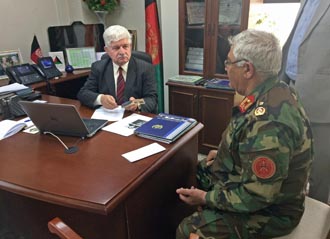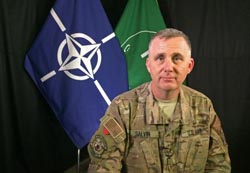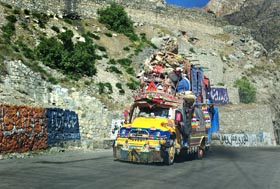Afghanistan - still begging and vulnerable
May 2017
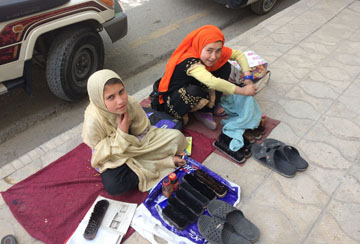
Shining shoes in the streets, but at the same time doing homework. Kabul May 2017
This excerpt from SIGAR - The Special Inspector General for Afghanistan Reconstruction - report of the first quarter 2017 to the US Congress, gives an accurate picture of Afghanistan now:
”The fighting continues, as does a reconstruction effort that has so far absorbed more than $117 billion in congressional appropriations. Both the security and civil aspects of reconstruction—ranging from developing Afghan security forces and advising ministry staff, to building clinics and electrifying towns—have yielded mixed results.
The United States and other international donors have helped Afghanistan make some progress. Afghan military and police forces have grown, taken lead responsibility for the country’s security, and show increased effectiveness. Public health has improved, as reflected in lower infant mortality and increased life spans. School construction and stu- dent enrollments have expanded. Women’s status is slowly improving. President Ashraf Ghani and Chief Executive Abdullah Abdullah both have personal involvement in attacking corruption, and better cooperation with U.S. investigators such as SIGAR in seeking indictments. These are no small achievements.
Yet serious problems persist. A dangerous and stubborn insurgency controls or exerts influence over areas holding about a third of the Afghan population. Heavy casualties and capability gaps limit the effectiveness of Afghan soldiers and police. Opium production stands near record levels. Illiteracy and poverty remain widespread. Corruption reaches into every aspect of national life. The rule of law has limited reach. Multiple obstacles deter investors and complicate business operations. The ranks of the jobless grow as the economy stagnates.
Efforts to combat these problems will also persist. At international conferences last year, the United States and other international donors committed to four more years of continued assistance to Afghanistan, and to delivering an increasing share of that aid on-budget—that is, under control of Afghan ministries and consequently with less visibility and influence for donors. ”
Some positive details are noteworthy.
Public opinion polls show less and less sympathy for Armed Opposition Groups - AOG. Only one tenth of the population think they fight not only for themselves but for a worthy cause.
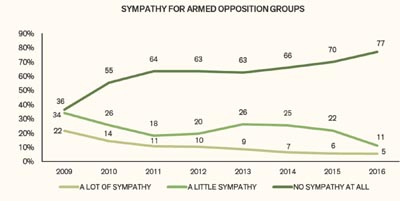
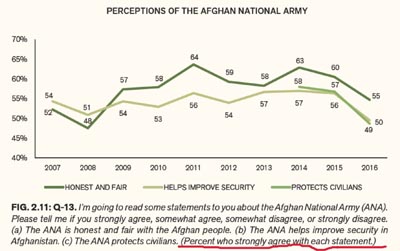
Sympathy for armed opposition neglectable. Still a strong majority holds positive views of the Afghan Security forces.
At the same time, though confidence is falling, a majority, 55%, strongly agrees that the Afghan National Army is honest and fair, and 49% strongly agree that they protect civilians. Overall, a clear majority has positive thoughts about the Afghan Security forces.
President Ashraf Ghani and his Chief Executive Abdullah Abdullah seem bent on fighting corruption and has taken several steps in this direction, under hard pressure from the International Community who might be tired of throwing money into the Afghan black hole year after year.
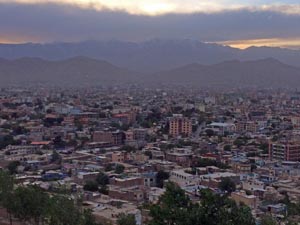
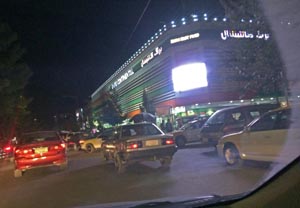
Kabul sunset and nightlife. Plenty of new cars.
One cause for the huge corruption, Afghanistan ranks as one of the worst in the world, might very well be the huge amounts beeing spent by the International community and the US in particular, since the fall of the Taliban in 2001, sums so huge that the almost non-existing administrative capacity of the Afghan government could not handle it. If there is no oversight, of course money ”disappears”. Too much, too long time.
NATO:s Resolute Support mission which succeeded the ISAF mission from 2015 has also made considerable efforts of curbing mismanagement and bad leadership among the Afghan Security forces.
Spokespersons: LtGen Waziri at the Afghan Ministry of Defence, Navy Captain Bill Salvin, NATO Resolute Support Mission
Soldiers are now biometrically registred to get rid of ”shadow soldiers” who only exist on the registers for salaries. And habits among higher officers, for instance, to have their soldiers pay extra for food or uniforms, are disappearing.
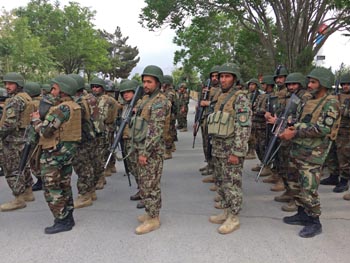
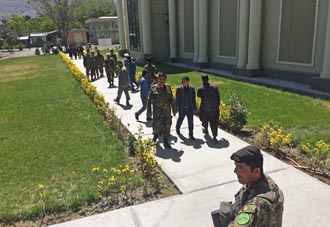
ANA, not exactly "the elite commando" soldiers, but capability is increasing, slowly.
General attitude towards gender equality is slowly changing to the better. I remember a poll made ten years ago, or so, among Pashtuns, considered to be the most ”traditional” when it comes to strongly keeping cultural and - to some extent - religious habits. When asked the hypothetical question, if the situation was that their wife would die if she could not come under the care of a doctor, and the only doctor awailable was male, if they would allow that, more than 80% answered ”no”. That was a poll made in the southeastern part, in the countryside. Now, in general, a majority of men are positive towards women recieving higher education. A slightly more positive attitude among women. But if women can work outside of the home, earning money on her own, a majority of men is reluctant.
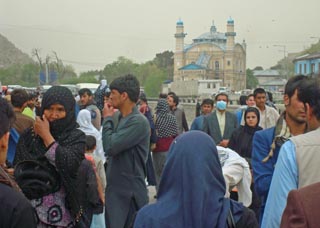
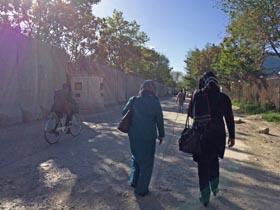
Shopping. Walking home after work along the blastwalls of "Wazir Akhbar Khan, Kabul.
The cities of Afghanistan - Kabul, Mazaar, Herat - are totally different from the southern countryside. Women in thin headscarves are now outnumbering women in burqas. There are some small signs of culture reemerging, like the Afghanistan National Institute of Music, under the leadership of Dr Ahmad Sarmast, where around 250 young afghans recieve education in both traditional afghan music as well as classical western. They even - at the students request - formed an all-women orchestra, now giving concerts!
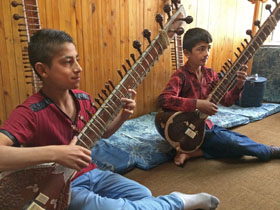
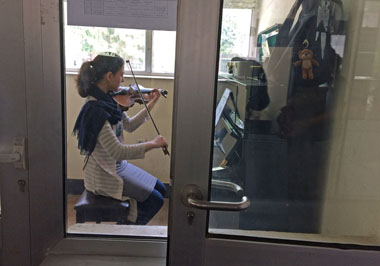
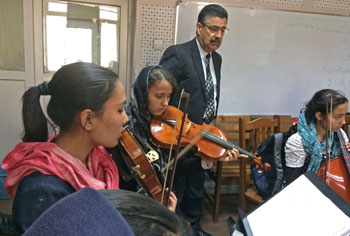
Afghanistan National Institute of Music. Dr Ahmad Sarmast, founder.
So signs are positive. But all efforts are dependent on finding a solution to the conflicts in the region. Complicating matters are the policies of Iran and Pakistan to forcibly return hundreds of thousands of Afghan refugees.
Jalalabad - Kabul road. On their way "back home" after decades in Pakistan.
Surrounding countries interfere. Pakistan is supporting the armed opposition to create ”strategic depth” in their conflict with India, and also for economic reasons - an underdeveloped Afghanistan, paralyzed by the mayhem from attacs and with billions of dollars of foreign aid flowing in, need to buy products and services, like electricity, from Pakistan. Iran and Russia seem to use the Taliban and their support to armed groups as a bargaing card in a geopolitical play. Countries like Sweden are more than happy to sell military equipment to those countries, thereby stoking the fire they proclaim to be trying to solve. It is complicated, yes, but not without solutions. Inshallah. Hopefully.
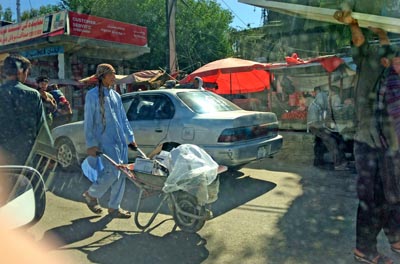
Street in Mehtarlam, Nangarhar Province. Foreigners better be back home before 2pm.
© Lennart Berggren / Axiom Film May 2017
